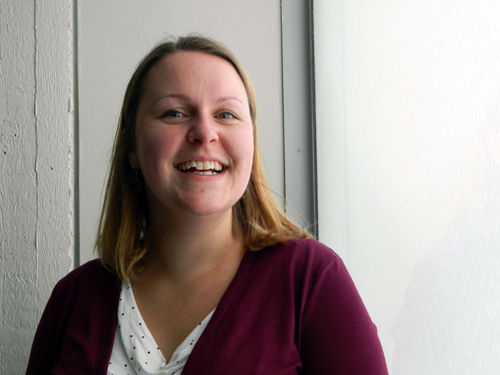
In the fall of 2006, 13-year-old Megan Meier from Missouri was contacted by a boy on MySpace. He said his name was Josh Evans, and he thought she was pretty. Megan had a history of past problems with depression, and this new friendship boosted her spirits.
They communicated frequently for the next few weeks, and then their conversations took a darker turn. Josh became critical of her and eventually told her the world would be a better place without her. Megan committed suicide.
Soon after, police learned that Josh Evans didn’t’t exist. The fake MySpace account had been created by the mother of one of Megan’s friends, who lived just a few houses away. Megan and her friend had had a falling out, and the mother saw this as a way to get back at her. The woman was charged and convicted, but the conviction was reversed on appeal.
“That’s an example of how dangerous cyberbullying can be,” says new U of G sociology professor Stephanie Howells. “In the past, when kids were bullied at school, at least they could go home and be safe. But cyberbullying follows them everywhere; they can’t get away from it.”
Her current research seeks to understand the phenomenon of cyberbullying and explore strategies to prevent it. One issue, she says, is that because it is so new, people are uncertain about how to respond.
“There is a lot of disagreement about whose responsibility it is. Schools say that since much of the cyberbullying happens at home, the parents should deal with it. Parents say that since this typically happens between students who first met at school, the school should deal with it,” she says. “And the police often don’t know how to intervene because many communities have no laws to deal with cyberbullying.”
Howells’s interest in bullying can be traced back to her master’s degree, completed at McMaster University, where she focused on the definitions of bullying and the problems caused by the lack of a single, clear description.
“I found there was no single, agreed-upon definition,” she says. “Behaviours included in the different definitions ranged from things like taking another child’s lunch money or calling him names at recess, to rape and murder. With such a wide variation, it becomes difficult to develop laws and policies.”
For her PhD thesis, also at McMaster, Howells shifted her focus to the perceptions of school safety. “School shootings and other examples of violence in school settings are often in the media,” she says. “I was interested in what parents, students, teachers and principals felt about the safety of their own schools.”
She also reviewed media reports, reading through more than 3,000 articles about violence in schools.
She found that while most media suggested that school violence was on the increase, the people she talked to who attended and taught at the schools, and the parents of students, all felt that their schools were safe. “Even those who were at higher-risk schools told me they felt safe because they knew who to avoid and where not to go. They felt that the media did not reflect their own experience in school.”
She adds that research suggests schools are actually one of the safest places to be; students are more at risk during after-school hours.
Now Howells is studying the newly emerging problem of bullying online and through social media. Cyberbullying, she says, is uniquely concerning because of the anonymity. “Anyone can create an account on most social media sites. Anyone can create a website and use it to bully someone.
“Under this cloak of anonymity, you can call others names and say things you’d never say to someone’s face. If you did, you’d see their reactions and how upset they were and you’d stop or apologize.”
Does she think bullying is increasing with the addition of this new cyberbullying option? Not really.
“I think there is simply more attention being paid to it,” she says. “Part of childhood is this jockeying for status, and it’s been going on forever.”
Outside of her research and teaching (she is teaching three courses this semester), Howells says most of her time is taken up caring for her one-year-old daughter, Maeve. Howells and her husband grew up a block away from each other in Hamilton and attended school together until Grade 6. They met up again when both were studying at McMaster.
Coming to the University of Guelph has been a long-time dream for Howells: “I guest-lectured here in 2005 and fell in love with the campus. From that day, every experience I’ve had here has been positive. I find the students here are enthusiastic and want to learn, and the other faculty and staff have been very welcoming.”